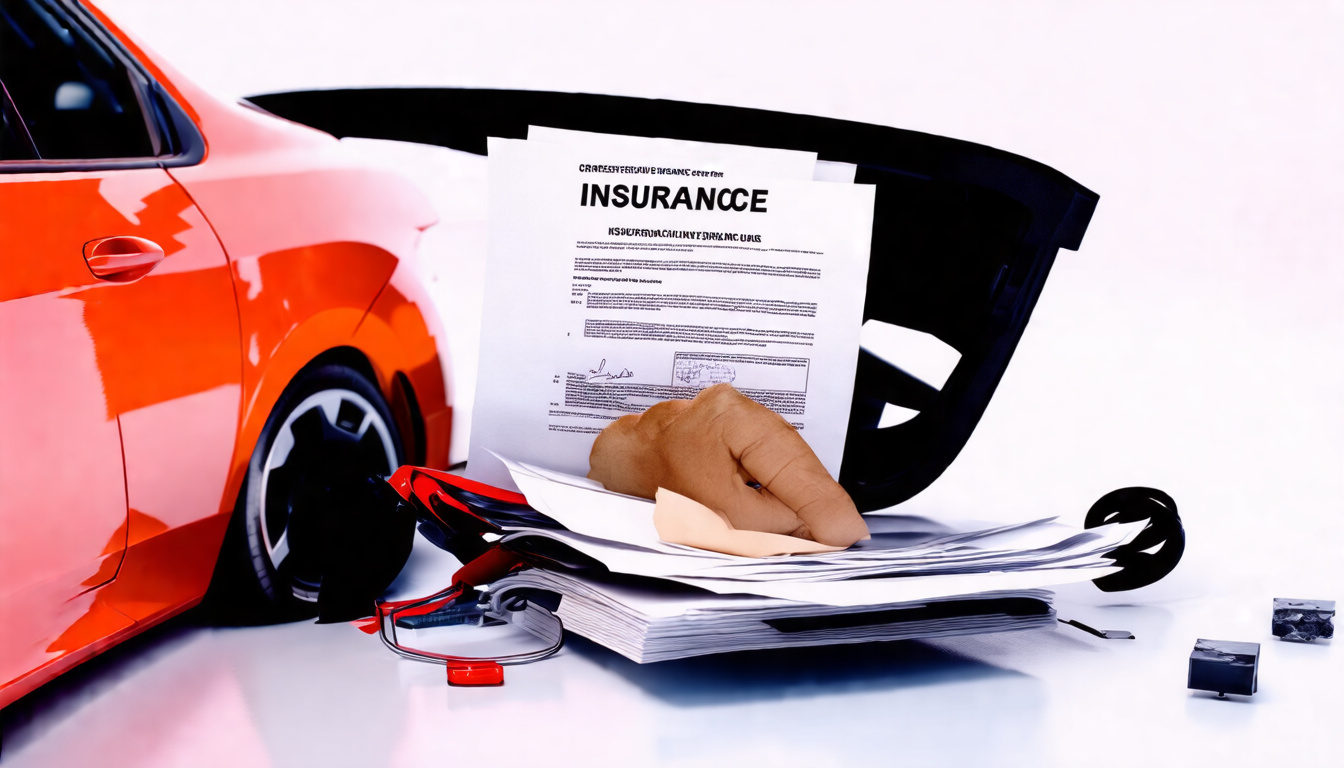When it comes to auto insurance, liability coverage stands as a key shield for every vehicle owner. It guards your finances in an accident and helps you follow state laws. Whether you are a new driver or have years behind the wheel, good liability coverage can stop high out‐of‐pocket costs.
In this article, we break down liability coverage. We show what it means, why it matters, how it works, and how to pick the right amount for you.
What is Liability Coverage?
Liability coverage is a part of auto insurance that protects you when you hurt someone or damage their property in a car accident. It does not pay for harm to your own vehicle. Instead, it works for accidents in which you are at fault.
Policies split liability coverage into two parts:
- Bodily Injury Liability: This covers medical bills, lost wages, and legal fees if another person is hurt or killed in an accident where you are to blame.
- Property Damage Liability: This pays for the repair or replacement of someone else’s car, fence, or building that you damage.
By law, states require drivers to have a minimum amount of liability coverage. This rule helps ensure that accident victims get paid.
Why Is Liability Coverage Important?
Liability insurance offers clear benefits:
- Financial Protection: Without enough coverage, you face expensive lawsuits or high out-of-pocket costs. Even minor accidents can lead to tens of thousands of dollars in medical and legal fees.
- Legal Compliance: Driving without the minimum liability coverage is illegal in almost every state. You may get fines, lose your license, or even have your car impounded.
- Peace of Mind: When you know you are covered, you drive with less worry. You can focus on safety rather than financial risk.
- Asset Protection: Liability insurance also shields your personal assets like savings or property from claims that go beyond your limits.
In short, liability coverage is a vital protection that keeps you safe financially and legally.
How Does Liability Coverage Work?
In an accident where you are at fault, your insurance pays for the harm to others up to your policy limits.
The process is simple:
- Accident Occurs: You cause an accident with injury or damage.
- Claim Filed: The injured party asks your insurer to pay.
- Insurance Adjuster Reviews: The insurer checks the damage and decides on fault.
- Claim Paid: Your insurer pays for the other party’s expenses up to your limits.
- Excess Costs: If costs go past your limits, you may pay the rest.
Remember, this coverage does not cover your injuries or your own vehicle damage. Other coverages, like collision or personal injury protection, handle that.
How Much Liability Coverage Do You Need?
The right coverage depends on you. Keep these ideas in mind:
- State Minimum Requirements: Your state has rules that show the least amounts you must carry. They are often written as numbers like 25/50/25.
- Assets at Risk: If you own a home or have savings, higher limits protect these from lawsuits.
- Driving Habits: If you drive a lot or long distances, more coverage can help with higher risks.
- Vehicle Value: Even though liability covers only others’ damage, knowing your car’s value helps you balance your insurance choices.
Many experts advise buying more than the state minimum. For example, 100/300/100 coverage stands for:
- $100,000 per person for injury,
- $300,000 per accident for total injuries,
- $100,000 for property damage.
This level is seen as a good baseline.
Tips for Selecting and Maximizing Liability Coverage
Keep these tips in mind for good coverage:
- Shop Around: Compare rates from many insurers to get the best deal.
- Bundle Policies: You may get discounts when you combine auto insurance with home or renters insurance.
- Increase Deductibles: Although liability has no deductible, adjusting other coverages might drop your premium.
- Review & Update Annually: Life changes, like a new home or a raise, can change your needs.
- Consider Umbrella Insurance: This extra insurance kicks in after your liability limits are met, giving more protection.
Frequently asked questions about liability coverage can help clear up confusion and guide decisions.

Frequently Asked Questions About Liability Coverage
Q1: Does liability coverage pay my medical bills after an accident?
No. Liability covers injuries to others. For your bills, you need personal injury protection (PIP) or a separate medical payments plan.
Q2: Is liability coverage required for all vehicles?
Most states require liability coverage for all registered vehicles. The amount needed can vary from state to state.
Q3: Can I have only liability coverage on my car insurance?
Yes. Some choose liability-only policies to meet legal needs, especially if their car is older. But this choice means you pay for your own damage.
Conclusion: Protect Yourself with Adequate Liability Coverage Today
Liability coverage is essential for every driver. It serves as a financial shield if you hurt someone in an accident. With the right limits, you stay legal and protect your assets. Today, review your policy or look for a new one that meets your needs. Secure your vehicle and financial future with proper liability coverage.
For more guidance on auto insurance, visit the Insurance Information Institute. This trusted source gives clear advice on insurance basics.
Don’t wait for an accident to find out that your coverage is not enough. Get in touch with your insurance agent or compare policies online. Your peace of mind is worth strong protection.
Author: Doyle Weaver, Attorney at Law
Home | Estate Planning | Personal Injury | Hill Country Lawyer | Terms of Service | Privacy Policy
© 2025 Digital Law Firm, P.C.
Disclaimer: The content provided in this blog is for educational and informational purposes only. It is not intended to constitute legal advice or establish an attorney-client relationship. The information presented does not address individual circumstances and should not be relied upon as a substitute for professional legal counsel. Always consult a qualified attorney for advice regarding your specific legal situation. The author and publisher are not liable for any actions taken based on the content of this blog.

Leave a Reply